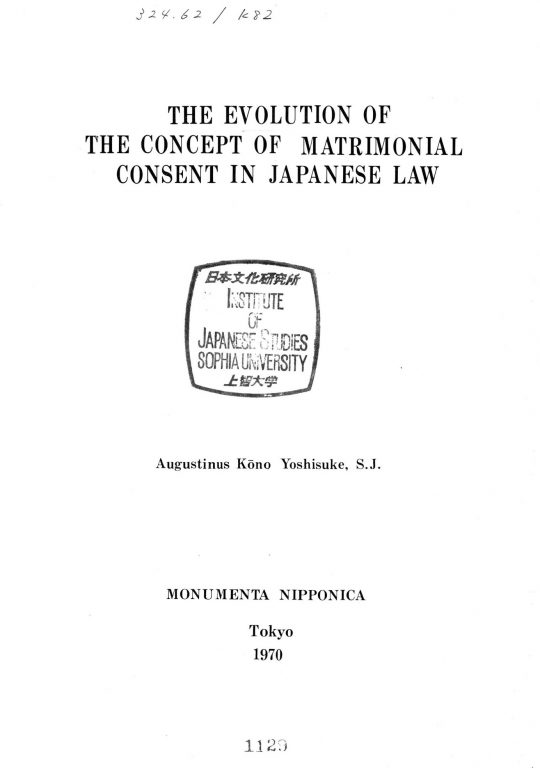The Evolution of the Concept of Matrimonial Consent in Japanese LawAugustinus Kōno Yoshisuke
Monographs (1970) pp. 1–103
It is my intention in this study to explore the way in which an increasing understanding of the very concept of natural law gradually manifested itself in Japan in the field of matrimonial law…. Japan, as is well known, was isolated from contact with other nations from the beginning of the 17th century to the middle of the 19th century. Hence, it was not socially prepared to introduce a Western kind of matrimonial law once it was open. However, at the very beginning of the Meiji Era, that is after 1867, a Western-style matrimonial system, rooted in a Christian understanding of man, was introduced…. During the fifty-year period extending from 1898, when the Meiji Civil Code was promulgated, to the end of World War II in 1945, Japan accepted, without fully assimilating, Western cultural patterns and introduced real changes both in her industrial activities and in her form of family life. During this period there was a gradually increasing awareness of the Western matrimonial system on the part of professors and those legal experts who were closely in touch with the problems latent in the Japanese style of family living. With the revision of the Constitution that followed World War II, due recognition was finally given to the importance of free consent in the marriage contract.
I understand this development of legislation on marriage to be an instance of the progressive, if slow and round-about, clarification of the meaning of the natural law.
1970. 103 pages.
Paperback. ¥1,000/$10.00/€10.00.
